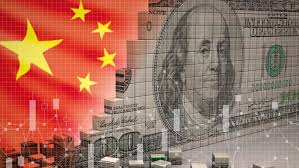Submitted by Ready Done

Finding a balance in life is one of the best feelings one can have, bills paid, meat in the fridge, veggies in the Aquaponic system. At this point in life, the air smells better and the grass is greener, no stress, life as mother nature intended it.
To maintain that state of balance is the hard part, the postman never forgets where you live and there are always next month’s bills. For an average person the cycle of work/pay is life as we come to know and love. We all understand how cashing in big now has repercussions for a long time after. Sometimes we grossly underestimate the length of the repercussions. We work as a society to spread out our responsibility and workload. The promise is that the average person can maintain a decent living with an honest day’s work; with that in mind the benefits of society far out way the required work, the mass production of high quality goods, like, toilet paper, Range rovers, North face bags and Galaxy s3’s make life sweet, we would not want to live without them. Our love affair with technology began when the first farmer left the first garden with the first tool.
A staff witch incidentally was the first piece of technology, given to us, ever since we have been improving upon technology to do what we always did, what we are programmed to do, garden, the current path of industrialized agriculture, genetically modified organisms and chemical fertilizers has worked well for us allowing one farmer to grow food for hundreds even thousands allowing us to have our full time jobs, and continue the cycle of society.
Modern agriculture is the most overlooked area in societal development and maybe our most productive, but we lost respect for the art of gardening simply because or society has gotten so good at it, some people live life never growing a single meal, you need a lawyer or doctor once a year but you need the farmer for every meal you eat. Here is the catch, modern agriculture has hit its peak production, and farmers are now producing less while still having more mouths to feed. The modern quick fix of chemicals are no longer beneficial they killed the soil, now leaching into the ground water slowing killing the cycle of life, the cow birds are disappearing, there are no more insects in the soil to eat when the tractor ploughs the ground, the soil is dead and worldwide yearly production is in rapid decline.
Technology, gardening and society have a friend in common called Aquaponics; it’s the modern kitchen garden. A new twist on an old reliable idea, an Aquaponics system will enable you to personally maintain a big enough living volume of soil to feed yourself without drastically altering the time you put into society. As we all slowly realize that it has fast become more financially responsible to start growing our own food and finding a balance in the coming effects of a dwindling food supply network in society, should all realize that the changes to be made to society are to be made on an individual level. At Baird’s village we remain committed to highlighting the idea of Aquaponics.
Like us on Facebook and share with us.




The blogmaster invites you to join the discussion.